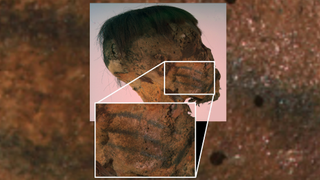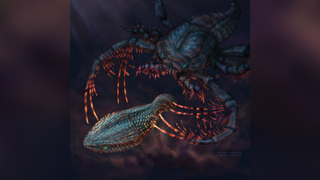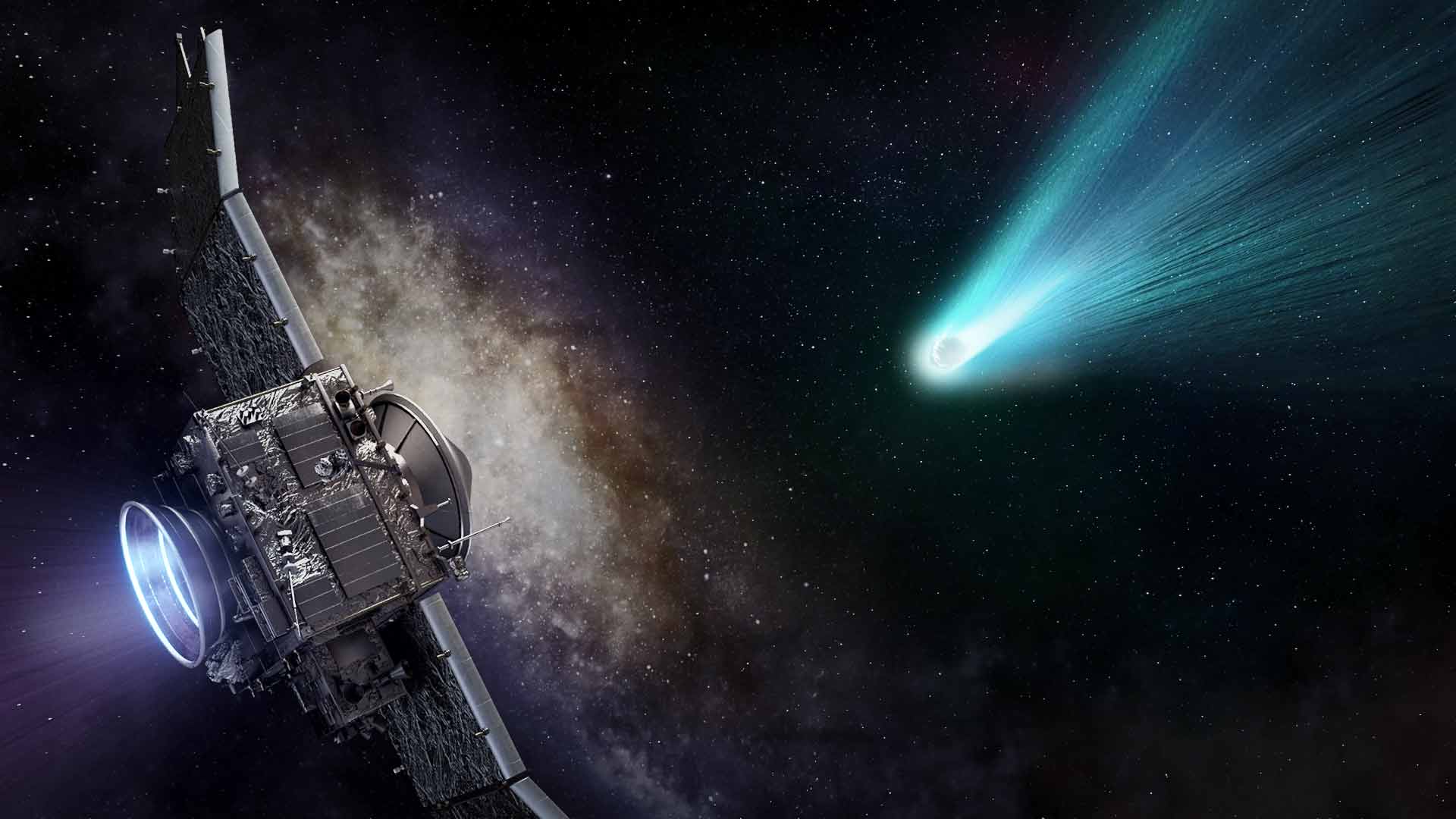
Kristina Killgrove
Kristina Killgrove is a staff writer at Live Science with a focus on archaeology and paleoanthropology news. Her articles have also appeared in venues such as Forbes, Smithsonian, and Mental Floss. Kristina holds a Ph.D. in biological anthropology and an M.A. in classical archaeology from the University of North Carolina, as well as a B.A. in Latin from the University of Virginia, and she was formerly a university professor and researcher. She has received awards from the Society for American Archaeology and the American Anthropological Association for her science writing.
Latest articles by Kristina Killgrove
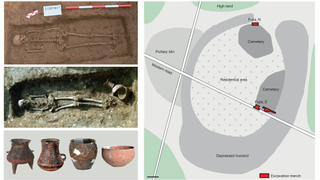
Women likely ruled in Stone Age China, DNA analysis of 4,500-year-old skeletons reveals
By Kristina Killgrove published
Genetic analysis of 60 people buried in a Stone Age cemetery has revealed two clans headed by women that spanned 10 generations.
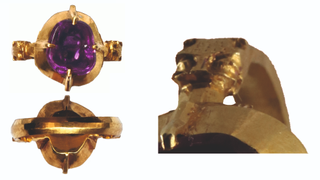
Medieval gold ring found in castle in Slovakia has rare purple sapphire imported from Sri Lanka
By Kristina Killgrove published
An analysis of a 700-year-old ring reveals a unique reddish-purple sapphire set in 18-karat gold with a lion decoration.

Ancient 'Dragon Man' skull from China isn't what we thought
By Kristina Killgrove published
Scientists have determined that a giant skull from an ancient human relative named the "Dragon Man" is actually Denisovan.
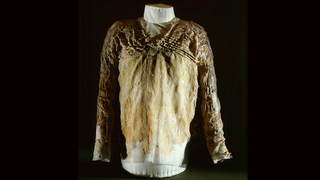
Tarkhan Dress: World's oldest known outfit was worn to an ancient Egyptian funeral 5,000 years ago
By Kristina Killgrove published
The world's oldest known dress is a simple V-necked garment that was overlooked as rags for decades.

14,000-year-old ice age 'puppies' were actually wolf sisters that dined on woolly rhino for last meal
By Kristina Killgrove published
A pair of canines found in Siberian permafrost were wolf sisters that died shortly after eating.

Strange pits on 'hobbit' teeth and other archaic humans could reveal hidden links in our family tree
By Kristina Killgrove published
Small clusters of pits in tooth enamel may be traced back to a single evolutionary lineage millions of years ago.
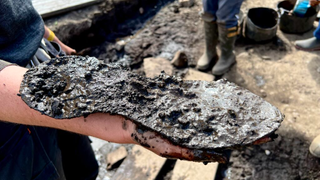
One Roman soldier had enormous feet, 2,000-year-old waterlogged leather shoe reveals
By Kristina Killgrove published
A surprisingly large leather shoe has been found at Magna, a Roman fort in northern England.
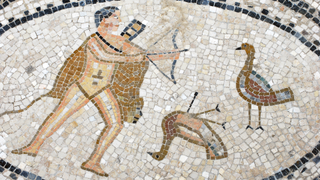
Roman-era 'fast food' discovered in ancient trash heap on Mallorca
By Kristina Killgrove published
Songbird bones found in a Roman-era trash pit on Mallorca suggests they were a tasty tweet.
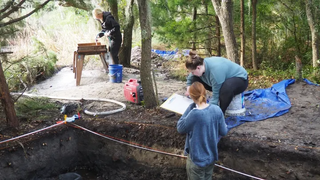
'Lost Colony' of Roanoke may have assimilated into Indigenous society, archaeologist claims — but not everyone is convinced
By Kristina Killgrove published
The recent discovery of copious amounts of iron trash on North Carolina's Hatteras Island may reveal the fate of a 16th-century "Lost Colony."
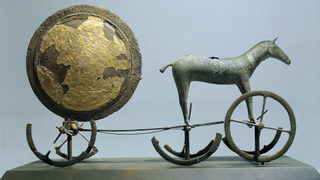
Sun Chariot: An ornate Bronze Age treasure that may have featured in an ancient Nordic religious ceremony
By Kristina Killgrove published
This gold-covered bronze object may depict a "divine" horse pulling the sun behind it.
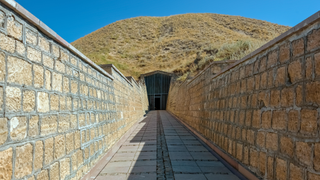
2,800-year-old royal tomb discovered near King Midas' home in Turkey
By Kristina Killgrove published
Turkey's minister of culture and tourism announced the discovery of a new tomb in an eighth-century-B.C. city that was the homeland of King Midas.
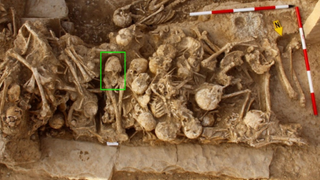
'Cone-headed' skull from Iran was bashed in 6,200 years ago, but no one knows why
By Kristina Killgrove published
The skull of a young woman found at a Copper Age cemetery in Iran has revealed evidence of cranial modification along with a serious traumatic injury.

Human evolution: Facts about the past 300,000 years of Homo sapiens
By Kristina Killgrove published
Discover interesting facts about the origin of the human species and what makes us different from our ape cousins.
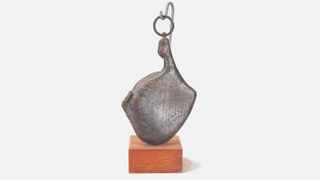
Prosciutto di Portici: A portable sundial that looks like a pork leg — and it was likely owned by Julius Caesar's father-in-law before Mount Vesuvius erupted
By Kristina Killgrove published
This small bronze sundial was a portable way of telling time, but it may have made you hungry.
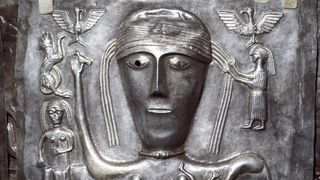
Celtic quiz: Test your knowledge about these fierce tribes once described by Julius Caesar
By Kristina Killgrove published
Is your knowledge of the Celts a veritable pot of gold, or do you need the luck of the Irish to finish the quiz?

'I did a bit of a dance': Detectorist finds gold 'mourning ring' engraved with skull and date in UK field
By Kristina Killgrove published
A British metal detectorist discovered a gold band with an engraved date-of-death in Norfolk.
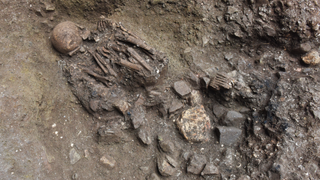
Newly discovered 'ghost' lineage linked to ancient mystery population in Tibet, DNA study finds
By Kristina Killgrove published
A study of more than 100 genomes from people who lived in ancient China has unmasked a "ghost" in their midst.

2.2 million-year-old teeth reveal secrets of human relatives found in a South African cave
By Kristina Killgrove published
A cutting-edge technique for analyzing fossil tooth enamel is revealing remarkable new information about 2 million-year-old human relatives.
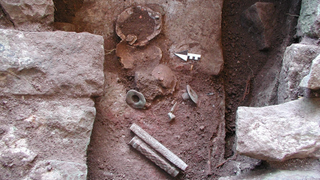
Genomes from ancient Maya people reveal collapse of population and civilization 1,200 years ago
By Kristina Killgrove published
Ancient DNA from people buried up to 1,600 years ago in Honduras have revealed clues to the rise and fall of the Maya.
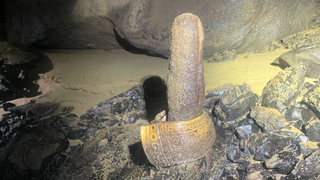
'Trash' found deep inside a Mexican cave turns out to be 500-year-old artifacts from a little-known culture
By Kristina Killgrove published
When two spelunkers investigated what they thought was trash in a cave in Mexico, they discovered more than a dozen artifacts dating back centuries.
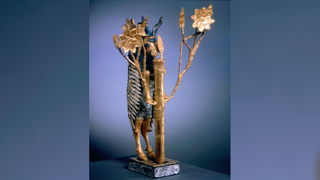
Ram in the Thicket: A 4,500-year-old gold statue from the royal cemetery at Ur
By Kristina Killgrove published
This statue covered in gold leaf and semiprecious stones may have been used in ancient Mesopotamian sunrise rituals.

Archaeologist sailed a Viking replica boat for 3 years to discover unknown ancient harbors
By Kristina Killgrove published
Archaeologist Greer Jarrett spent three years piloting a small sailboat along the coast of Norway to understand Viking trade routes.
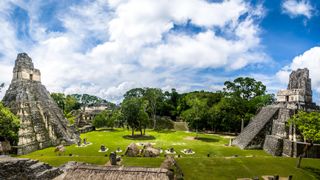
Ancient Maya quiz: What do you know about the civilization that built pyramids across Mesoamerica?
By Kristina Killgrove published
Is your knowledge of the ancient Maya as extraordinary as their pyramids?
Get the world’s most fascinating discoveries delivered straight to your inbox.
